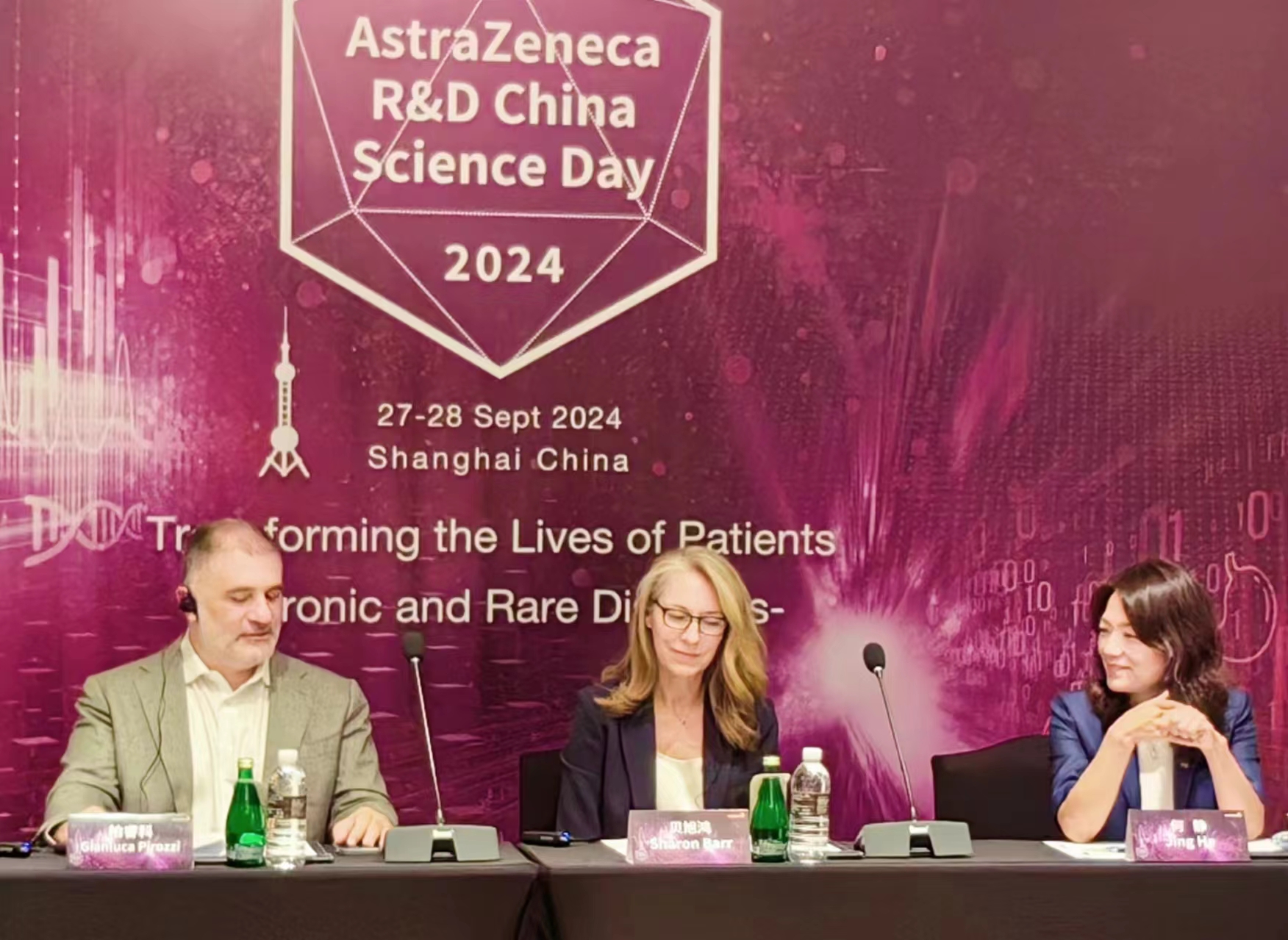 AstraZeneca Doubles Down on Chronic, Rare Disease Innovation in China
AstraZeneca Doubles Down on Chronic, Rare Disease Innovation in China(Yicai) Sept. 30 -- AstraZeneca will strengthen its commitment to researching chronic and rare diseases in China, driving global innovation by leveraging the country's vast patient population and burgeoning biotech ecosystem, according to the head of biopharmaceuticals research and development at the Anglo-Swedish drugmaker.
China's aging population and growing chronic disease burden present challenges and opportunities, Executive Vice President Sharon Barr said at the firm's R&D China Science Day held in Shanghai on Sept. 27 and 28. The Cambridge-based company is addressing the challenges with nearly 50 projects on cardiovascular, respiratory, and metabolic diseases.
AstraZeneca highlighted cell and gene therapies as key areas for future breakthroughs at the China R&D Science Day, the fifth since the first event was staged in 2022.
Cardiovasuclar disease is the leading cause of death in China, while chronic obstructive pulmonary disease is the third, Barr pointed out.
Tripartite Strategy
For rare diseases, diagnostic challenges and limited treatment options persist, noted Gianluca Pirozzi, senior VP and head of development, regulatory and safety of AstraZeneca Rare Disease. "Diagnosis is always a challenge,” he said. “It can take up to five years to diagnose a rare disease."
AstraZeneca started working on rare diseases after acquiring Alexion Pharmaceuticals, a Boston-based firm focused on developing therapies for people with rare disorders. It has six drugs approved on the market and nearly 20 projects, including nine in late-stage development, Pirozzi pointed out.
AstraZeneca has a three-pronged strategy for rare diseases in China, Pirozzi noted. They are early engagement with regulators, deeper interactions with hospitals and researchers, and increased collaboration with patient organizations, he added.
AstraZeneca is expanding collaboration with Chinese biotech companies, academic institutions, and hospitals, said He Jing, SVP and head of the firm's Global R&D China Center. "We are conducting late-stage clinical trials and early-stage research, including Phase I studies,” he said.
China's Role
The role of China in AstraZeneca's global innovation strategy continues to grow, Barr pointed out. "With the rich academic network, biotech ecosystem, and capabilities we are experiencing here in China, it is helping AstraZeneca achieve our bold ambition to create transformative new medicines for patients who need them,” she said.
"One of our key challenges is identifying the biological drivers of these diseases and finding the right treatments to help those patients," Barr said. "The opportunity in China lies in our ability to conduct translational research studies here, which we cannot achieve elsewhere in the world due to the large patient population.
"We can perform these translational research studies in conjunction with understanding how to connect biological mechanisms to diseases," she added. AstraZeneca is fostering China alliances to enhance its knowledge worldwide while collaborating with international researchers to analyze differences between Chinese and Western patients, she pointed out.
"We aim to serve as a bridge, connecting China's innovative capabilities to develop solutions for patients globally," He noted, adding that the R&D center in China has significantly increased the quantity and scope of clinical studies conducted in recent years.
China Investment
Since 2021, AstraZeneca has invested around USD6.5billion in China and partnered with several innovative biopharmaceutical companies. It spent almost USD2 billion on chronic disease tie-ups with Eccogene and Cholesgen.
AstraZeneca also acquired Gracell Biotechnologies, which specializes in cell therapy, for USD1.2 billion last year, giving it "a very good anchor point in China" for advancing these cutting-edge modalities in cell and gene therapies, He said.
Recent regulatory changes in China are further accelerating innovation in the pharmaceutical sector, Pirozzi noted. New policies allowing foreign investors in free trade zones opens up more possibilities, creating many opportunities for firms to conduct and share studies in China for the first time, especially in gene therapy, he added.
Editor: Martin Kadiev